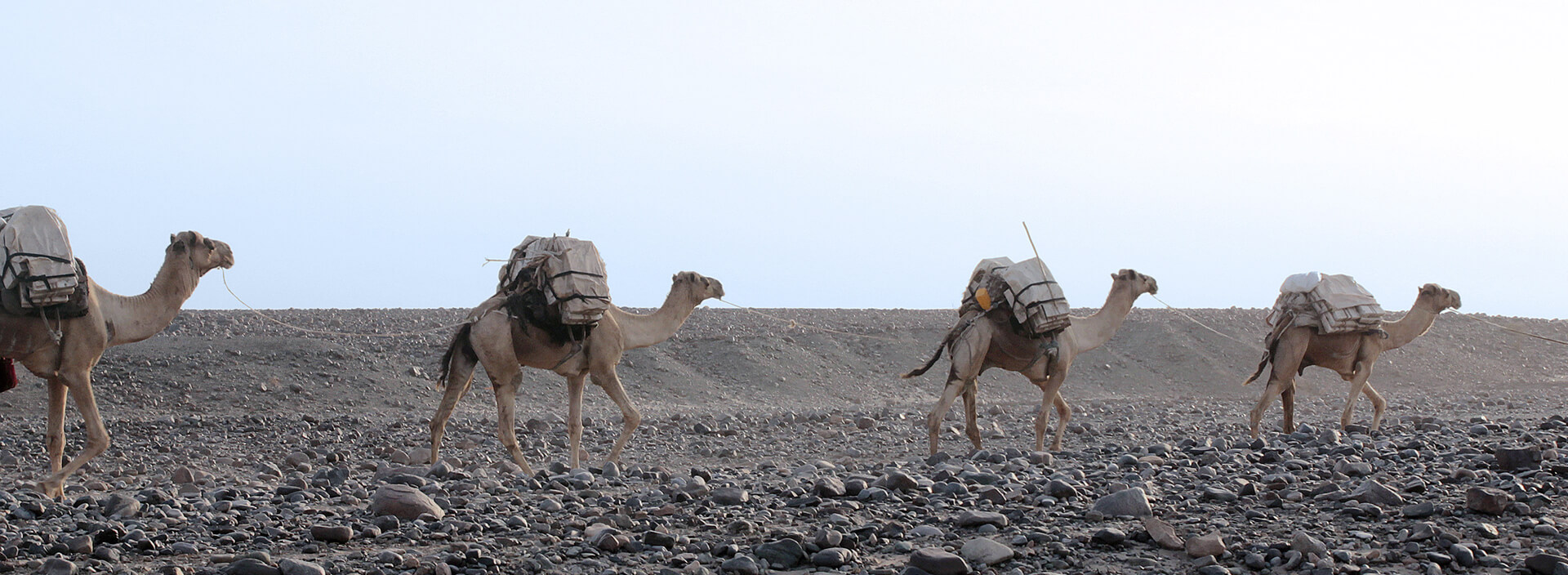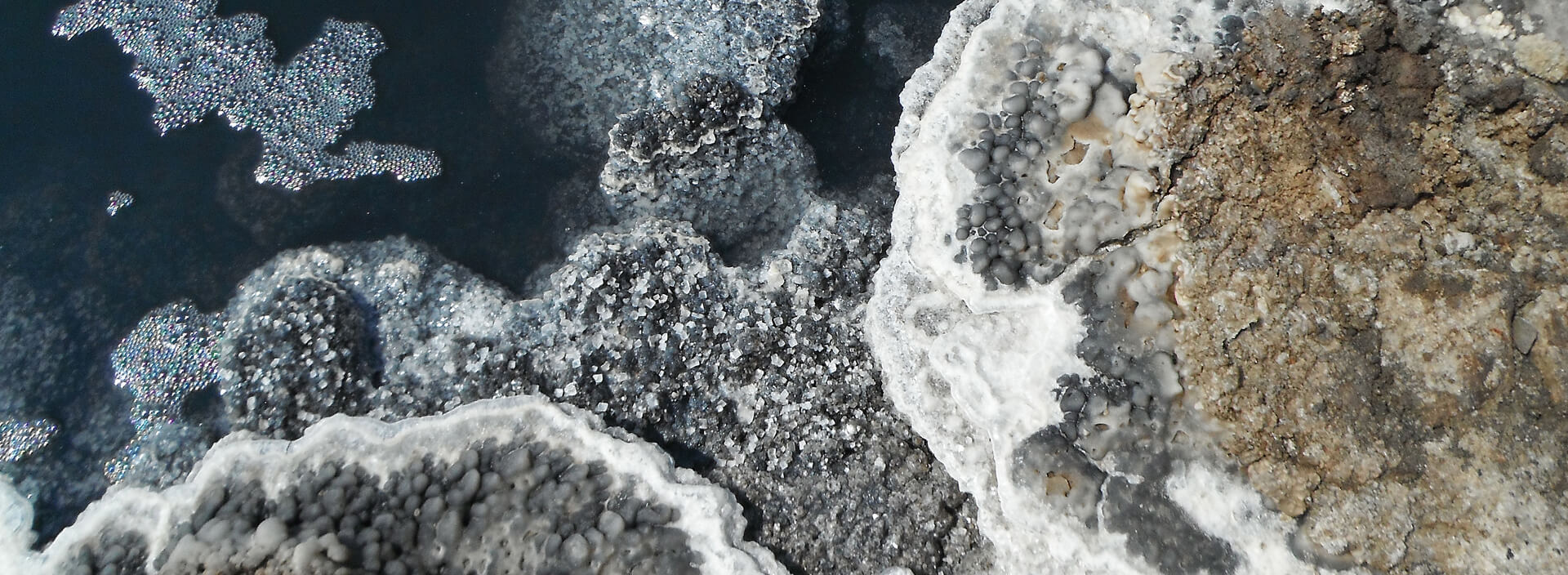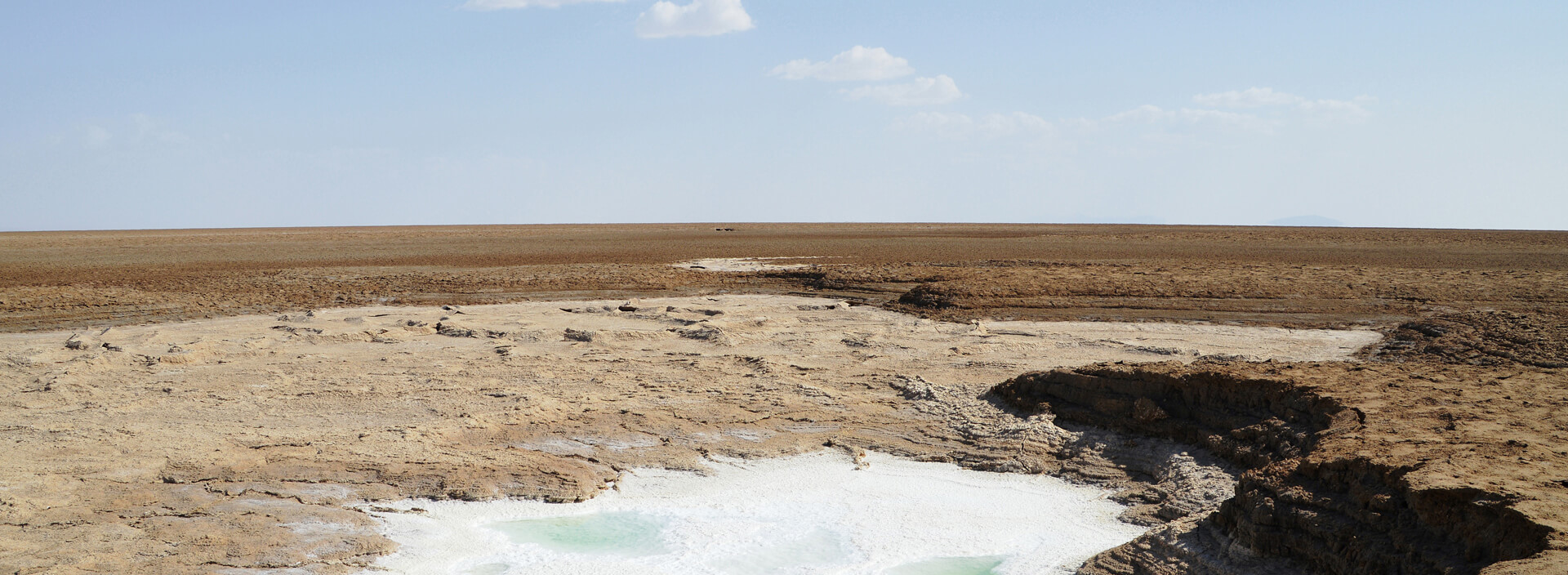The Danakil Potash Project is located in the Afar Region of northeastern Ethiopia, about 600 km north-northeast of the capital city of Addis Ababa. The Afar Region is situated in the Danakil Basin, an extensive evaporite basin with a length of about 200 km and a width of 50 km to 80 km. The basin structure runs roughly parallel to the Red Sea and extends into Djibouti as well as into Eritrea. This desert area is characterised by a flat surface that is interrupted by only a few hills known as Mount Dallol, Black Mountain and Ashe Ale.
The Danakil Basin is among the hottest places on Earth. In the summer, daytime temperatures can reach up to 50°C and in the winter they are consistently in the high thirties. It is also one of the lowest places on the planet since much of the Danakil Basin lies below the current sea level. Precipitation in the basin itself is rare and the extreme conditions and the presence of salt at the surface means there are limited permanent settlements within the region. These climatic conditions (hot and very little rain) are conducive for low-cost solar evaporation. Water in the region is mostly subterranean and comes from the adjacent lush catchment zones of the Ethiopian Highlands.
The Danakil Basin has long been known to contain near surface potash mineralisation, with nearly 100 years of potash exploration history in the area. Circum’s Danakil property covers 365 square kilometres and consists of potash horizons (sylvinite, carnallitite and kainitite) that range from 4 to 50 metres in thickness and can be as shallow as 85 metres in depth. The average depth of the drilled deposit is in the range of 200 metres. This compares very favourably with deposits in Saskatchewan, Russia and Belarus, which are more than 500 metres in depth, and those in Europe which can be up to 1,400 metres in depth.



